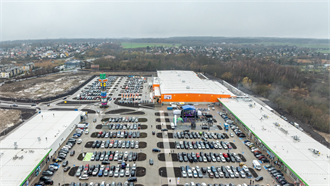With the new year around the corner, our reporter Dominic Gover asked real estate professionals to dust off their crystal balls and peer into the future.
OUTLOOK 2020: Tighter yields, lower returns, more M&A
- In Magazine highlights
- 10:01, 17 December 2019
Premium subscriber content – please log in to read more or take a free trial.
Events
Latest news
Best read stories
-

Trei invests €44m in Polish retail parks over 2024
- 19-Dec-2024
International developer and asset holder Trei Real Estate has concluded 2024 with the opening of its 41st Vendo Park in Poland.
-

-
- 19-Dec-2024
CDC snaps up Paris office from Deka

-

-






























